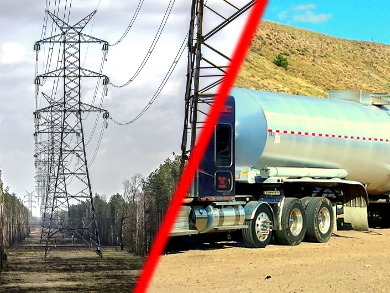Meeting the world’s increasing demand for energy while transitioning away from fossil fuels is a complex problem. The transport of energy is often neglected in this context. However, the cost of transporting energy needs to be taken into account, and it varies strongly between electrical energy and different types of chemical energy carriers, such as oil, gas, or hydrogen.
Nathan S. Lewis, California Institute of Technology (Caltech), Pasadena, USA, Eric W. McFarland, University of Queensland, Brisbane, Australia, and University of California, Santa Barbara, USA, and colleagues have estimated the unit cost of energy transportation for oil, natural gas, hydrogen, and other pipelines, as well as for oil and gas tankers and for electrical transmission lines. The team based their estimate on a scenario with increasing energy demand and a switch to lower carbon emissions. They considered the costs of building, operating, and maintaining the transport systems.
The researchers found that the cost for energy transport varies by over two orders of magnitude for the same distance when comparing different energy carriers. The cost ranges from a few cents per Joule and kilometer (for oil tankers) to several US dollars per Joule and kilometer (for hydrogen pipelines). Both electricity and hydrogen are much more expensive to transport than oil or natural gas. This is due to the high energy density of oil and gas.
According to the team, transport costs for sustainable energy carriers will have to be reduced to successfully transition to alternative energies. However, they also point out that differences in transport distances for the various types of energy are not accounted for in this analysis.
- Relative costs of transporting electrical and chemical energy,
Fadl H. Saadi, Nathan S. Lewis, Eric W. McFarland,
Energy Environ. Sci. 2018.
https://doi.org/10.1039/c7ee01987d




